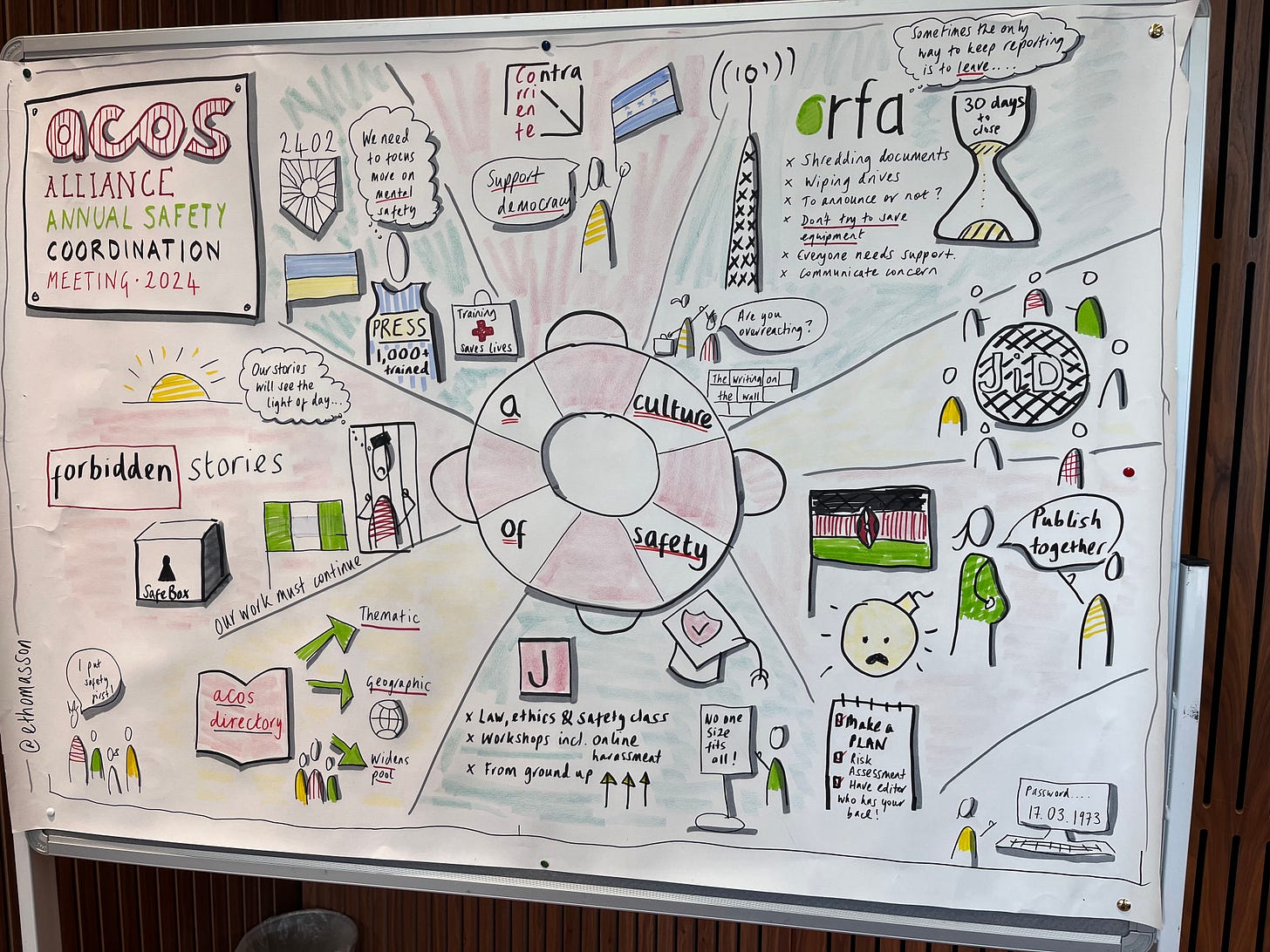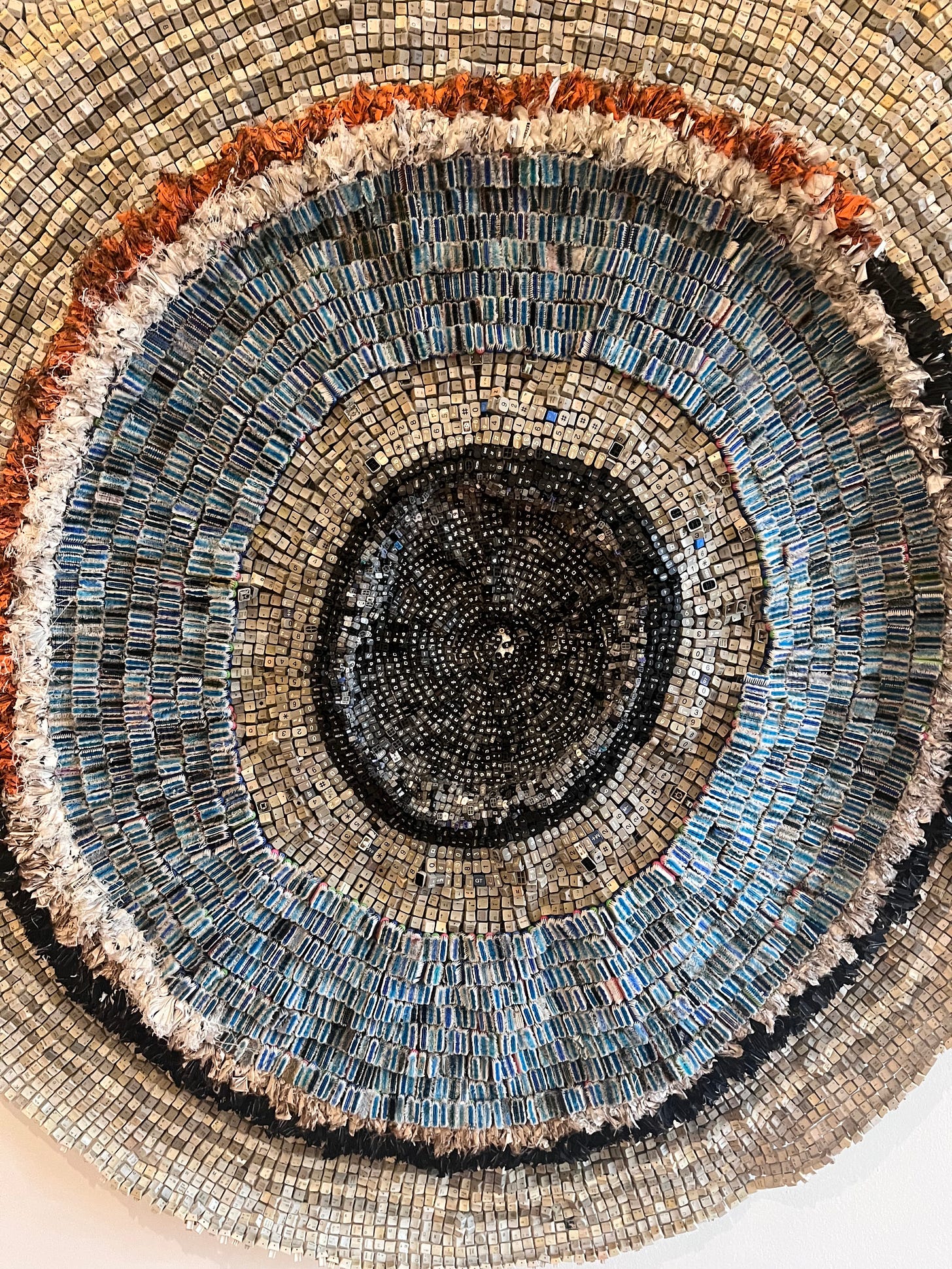I returned to the Reuters office in London recently for the first time since I left the company two years ago. I wasn’t there to rekindle my journalism career but to act as moderator and visual recorder for the annual meeting of the ACOS Alliance, a group that campaigns for journalism safety.
It felt like an important milestone a year after I started my own business as a media development consultant, facilitator and leadership coach. I have experimented with several new roles since I stopped being a Reuters journalist: teacher, entrepreneur, blogger, keynote speaker, training manager, coach. For a long time, it felt uncomfortable to describe myself as anything other than a journalist.
But trying on new jobs, like trying on new clothes to find the right fit, is what London Business School professor Herminia Ibarra advises in her classic about career transitions “Working Identity”. I should have read the book before I took the big plunge to leave Reuters. She argues that we don’t need to know the end destination before we decide to try something new. Of course, it is a privilege to have the financial security to take this experimental approach.
“By far the biggest mistake people make when trying to change careers is to delay taking the first step until they have settled on a destination,” Ibarra says.
I was trying on a new “working identity” during the conference at Reuters. A year ago, I would have felt uncomfortable visiting my former employer, unsure at what to tell people about what I am doing now. I now feel more assured even though my identity is still in flux. This was the first time I was paid to act as a “graphic recorder”. My task was to summarise and visualise the discussions at the ACOS meeting about physical and mental safety for journalists. I’m pleased with the result.
It was great to see the stunning Reuters meeting room above Canary Wharf and connect with friends from across the news industry, although many have dark rings under their eyes as they work to keep reporters safe in danger zones.
The meeting included a presentation by a former colleague about the peer support network I used to help help run at Reuters. Listening to her, I realised that I have mostly stopped using the royal “we” to talk about policies and practices at Reuters as I have gained more distance from my employer of so many years.
So this seems a good time to reflect on lessons I have learned in making the leap:
1. Freedom trumps security…. if you have privilege
It is liberating to try out new identities, but it can be terrifying too. I have never questioned whether I made the right decision to leave Reuters, but I have certainly questioned whether I will ever be able to regain the earnings and prestige I took for granted when working for the world’s biggest news agency. I am very conscious that I have a huge amount of privilege in being able to enjoy the freedom to experiment largely because I was lucky enough to join the journalism profession when it was still a well paid and secure career.
2. Go back to school
My savings meant I didn’t have to start looking for work immediately – I went back to university for a few months and won a place on a fellowship in Spain. I also made the most of the heavily subsidised German adult education system to take courses in training and moderation as well as visual recording and strategic design. I learnt how to write a business plan, build a website and create this newsletter. I had experimented with new identities even before I left Reuters, starting with a leadership coaching course I took five years ago – exactly what Ibarra recommends. It can be exhilarating to do something different – a participant at the ACOS meeting who watched me draw said he could see I was totally absorbed in the task and it’s true – the meeting went by in a flash, even if I was pretty drained at the end of it.
3. Build a new network
I have shamelessly milked the advice of other career-changers I have met along the way. People I work with at organisations like the Thomson Reuters Foundation and The Self Investigation have become like office buddies, but without the office politics, thankfully. Ibarra suggests building a “community of practice” – an informal collective of people working in similar areas to share ideas and support one another. I want to set up one for consultants supporting media development. Watch this space.
4. Say Yes!
I have said yes to lots of interesting projects that have taken me across Europe and the Middle East in the past 18 months. I have taken on projects even when I wasn’t necessarily an expert, like the course I ran in September on blockchain and Web3 technologies. I have moderated my first panel discussions and given my first keynote. But stepping out of your comfort zone is uncomfortable and I know that my stress has sometimes made me scratchy at home. (Sorry, family!)
5. Say No!
As the work and travel has picked up, I have also allowed myself to say “No” and to push back against pro bono “opportunities”. So I have turned down requests for workshops at conferences when I would only be paid expenses but not for my time or expertise. Learning to know my own value and put aside squeamishness about asking for (more) money has been one of the hardest lessons of self-employment. And even though I teach courses on burnout prevention, I don’t always practice what I preach in terms of setting boundaries and taking breaks (she says, writing this after 6pm on a Friday evening…)
6. Take your time
A friend who had also stepped down from a big corporate job made me promise not to apply for another position straight after so many years of uninterrupted toil. But I did send off a few panicked applications even before leaving Reuters, so hard did I find the prospect of being without an employer. That remains a challenge. While I have now built up a busy portfolio career, I miss working for an organisation with a common purpose, and running a team, so I am still on the lookout for opportunities that might suit my eclectic mix of skills and interests. Ibarra says it can take 3-5 years to cement a career transition. I guess I still have a way to go.
“Change always takes much longer than we expect because to make room for the new, we have to get rid of some of the old selves we are still dragging around and, unconsciously, still invested in becoming,” she said.
7. Do nothing
I have visited amazing exhibitions in many major cities during work trips, and I have been able to do more sport and work from our cottage in the forest. But I have been useless at using my new freedom to DO NOTHING. I really have to work hard to force myself to rest in my beautiful hammock. My workaholic tendencies and financial anxiety mean I am at my desk for longer hours than I ever was at Reuters, for less pay. I recently found myself too tired to really enjoy Venice after a conference, for goodness’ sake, although I did catch some fantastic art there from Zimbabwe.
What I am reading:
Birnham Wood - Eleanor Cathill - A gripping page turner about hippie activists confronting a billionaire villain in New Zealand. The ending was a bit fanciful and felt like it had been written for the big screen but it was still a great holiday read.
Outliers - Malcolm Gladwell - A book about the unexpected factors that lead to success. I am late to the party on this one and some of the book feels a bit dated already but it was still a fascinating exploration of the importance of grit, luck, upbringing and culture behind the best and the brightest. The only downer was that it made me feel like I should be trying harder to be a Tiger MUm with my kids.
Cloud Cuckoo Land - Anthony Doerr - It took me a couple of tries to get into this multi-character narrative about the power of the written word, but I was eventually captured by a powerful story stretching from Constantinople via the Korean war to future survivors of climate disaster hurtling through space in search of a livable planet.











Dear Caro, perhaps you could give me some lessons in doing nothing one of these days! See you soon hopefuly
Liked it and shared it, building our own community in this path is something I'm thrilled about. A big hug Emma!